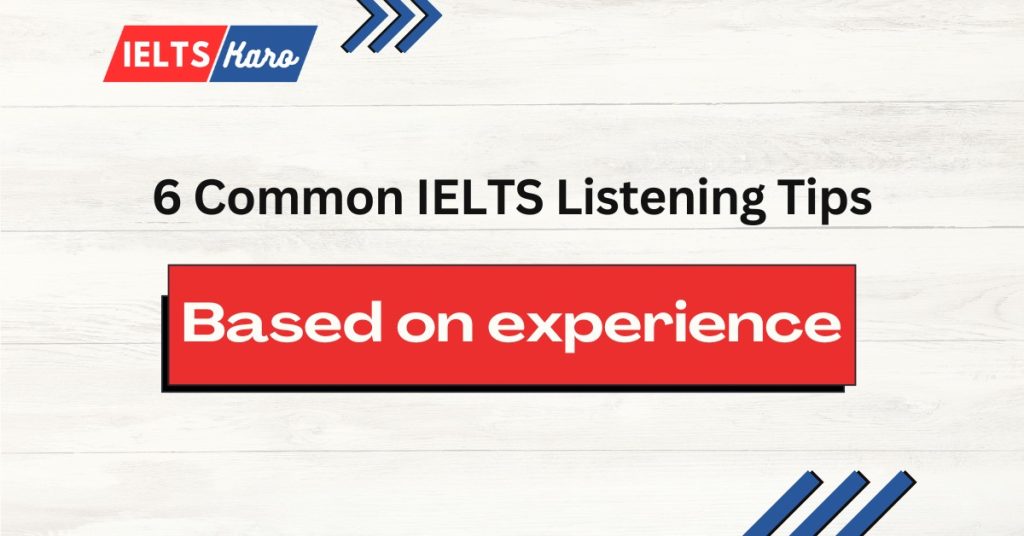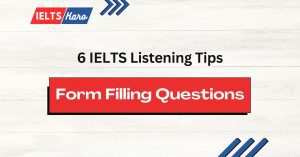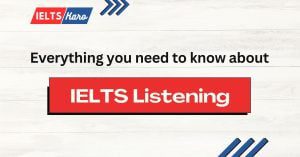IELTS Listening Tips
The IELTS Listening Test is of 30-minutes where you have to answer 40 questions as you hear the recording. All recordings are played once only! In this blog post, I share based on my experience, the most common IELTS listening tips. Since I have an 8.5 in Listening, I am confident these will work out for anyone. 😉
While I have already shared the details of the IELTS listening test, it is important to know that there are traps laid out throughout the test. If you don’t pay attention, you CAN fall into them, leading to a lower than desired band score!
Here are some of the most common IELTS Listening tips:
All MCQ Options May or May not be heard in the recording
While it is true that you have to select one (or two, based on question instructions) answer from MCQs, you need to be careful though. Not all options that you see in paper may be heard in the recording. This means that you need to pay close attention to the keywords, and any synonyms so that you can reach closer to the right answer.
The First Response After the Question may NOT be the right one
Many times, when you hear something like:
So, what time is the train departing from the station?
You get to hear something like:
Oh, that would be 8:45 PM every Monday.
Thinking that the correct option is 8:45 PM, you hear this:
Oh, wait a minute. My bad! It is 9:45 PM.
Did you see that? That’s what I call a DANGEROUS trap! You can shortlist the first answer, but it will not always be the right one. Instead, you need to continue listening so that you can be sure of the correct answer.
Check The Next Part After The Current Part is Completed
Let’s suppose you just completed Part 1. Well done! Now, you will get 30 seconds to check your answers to the questions to part 1. During this time, spend no more than 10 seconds on Part 1, and immediately move on to Part 2. I get it! I know you might be wonder, “but when have time, why should we move on?”
And that’s the exact reason why you should. You need to remain one step ahead of the recording. During the time you get to review answers to your completed part, move on to the next one, and review all the questions. Then, the recording will be played where you will be given 30 seconds to look at the questions. This gives you an added layer of safety, knowing you are well ahead of the speaker!
Always Write the Keywords
For IELTS Listening and Reading, you will hear me often say to highlight the keywords. But what exactly are the keywords? Here are some examples:
- Any name of a place, person, city, area, country, continent, organization, business, or an animal species, is a proper noun, which will always be a keyword.
- Any type of date such as month, day, week, year, etc.
Go for the Right Word Count
The Listening test has instructions on the word count for each answer, such as ONE word, no more than TWO words and/or a number, etc.
Remember the following:
- If the instruction says ONE word and you write “a lion”, the answer will be marked as incorrect, even though “lion” is the correct word.
- If you write a number in words and not numerals, that is acceptable. For example, ‘four hundred and five’ is ‘405’ and counts as ‘a number’.
Correct Spelling
Correct spelling is compulsory to have the correct answer. If the spelling is incorrect, the answer will be marked as incorrect. Make sure you research and practice spellings for 200+ most common IELTS vocabulary so that you can get a good score just by having correct spelling.
Let me know in the comments how practical did you find these IELTS listening tips.



